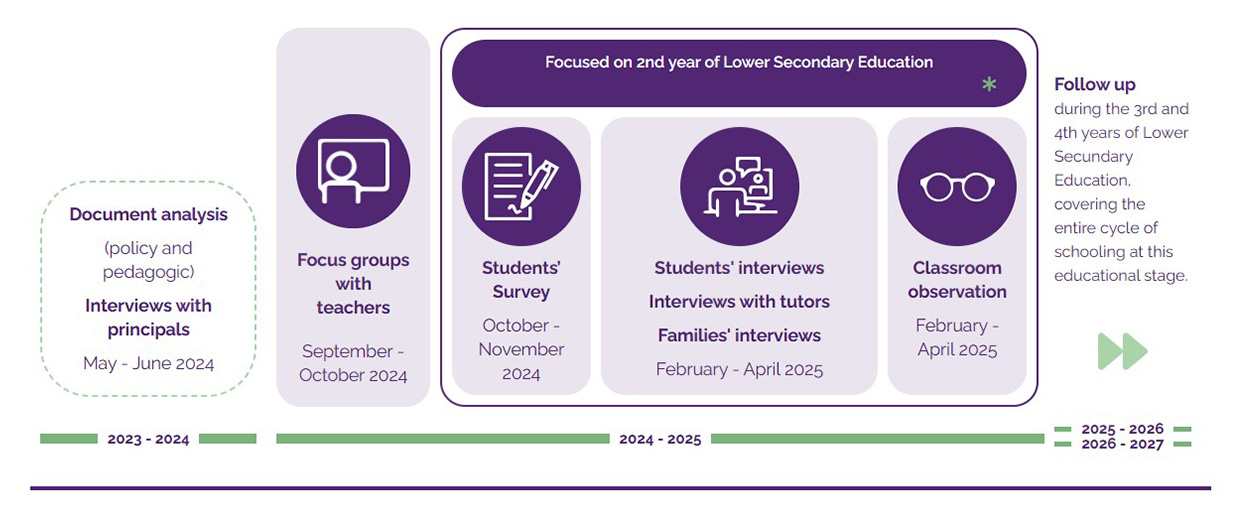Work Packages and Methodology
In coherence with the general and specific objectives of the project, LEARNER develops an ambitious mixed-method research strategy that includes a variety of Spanish regions (Catalonia, Extremadura, and Madrid), actors (principals, teachers, families, and students), and research techniques (document analysis, focus groups, longitudinal interviews, observation, and a survey).
WORK PACKAGES

- General coordination of the project
- Theoretical, conceptual and methodological framework
- Seminars with the International Scientific Board
- Coordination and follow-up meetings

- School sampling and negotiation of access
- Document analysis at policy and school levels.
- Interviews with principals
- Focus groups with teachers

- Survey with students
- Longitudinal interviews with students
- Classroom observation
- Interviews with tutors and families

- National and International dissemination of the project
- Scienfic and social impact
- Publications
- Conferences
Methodology and timeline
* Equivalent to the international classification of ISCED 2 or to the Year 8 of compulsory Education in Spain, when pupils are between 13 and 14 years old
** Research demonstrates that the dynamics of school disengagement and disaffection are specially pronounced within secondary education, being particularly relevant to explore the configuration of the learner identity during this educational stage and explaining the focus of LEARNER on it.

